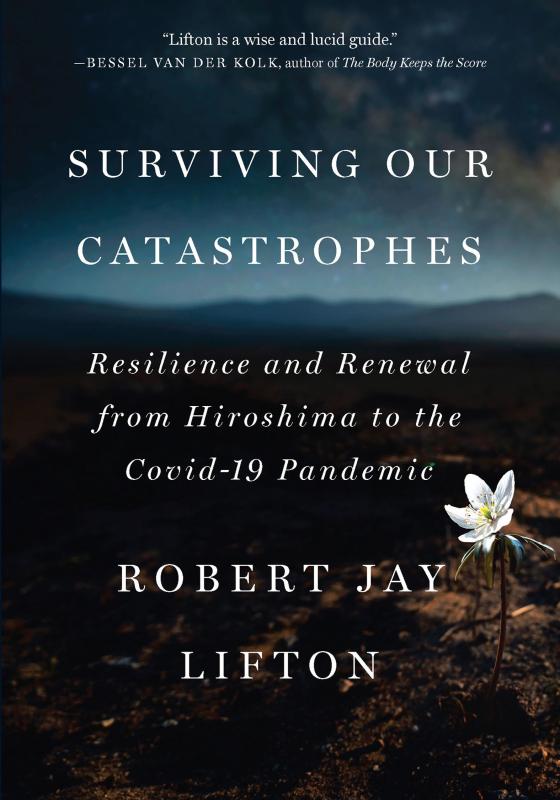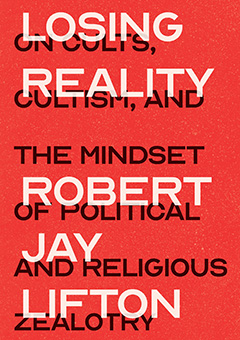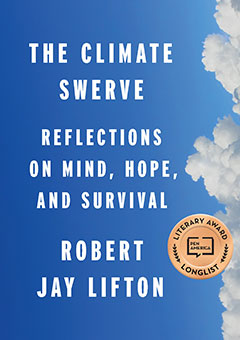Reading Lifton: Catastrophe, Cults, and Climate
By:
PublicityTuesday, April 8, 2025

By Shalra Azeem, Spring 2025 Intern
National Book Award–winning author Robert Jay Lifton is a pioneer of the field of psychohistory. Psychohistory is a field of study that blends psychology, history, and other social sciences to analyze human behavior and understand the emotional reasoning behind behaviors of individuals and groups from significant moments in history. Lifton, having been drawn to this field after interviewing WWII survivors of Hiroshima in the 1960s, has since used psychology to better understand the psychological effects of war and mass political violence. In addition, Lifton has focused his studies on renewal and thought reform in the 20th and 21st centuries. Lifton’s three titles at The New Press showcase different ways in which the field of psychohistory can be implemented to analyze historical moments and find hope for our present and future.
In Surviving Our Catastrophes, Lifton calls upon his extensive knowledge of the human response to mass tragedies such as Hiroshima and the Holocaust to chart a path of hope and resilience when confronting the lasting effects of the devastating COVID-19 pandemic. Now in a paperback edition with a new epilogue from the author, Lifton asserts that we cannot force the pandemic into the rearview mirror but rather must confront the effects of COVID on individuals and our society in order to achieve forms of renewal.
In this unique and radical volume, Lifton makes a connection between the psychologies of extremist political movements and fanatical religious cults. In Losing Reality, Lifton describes how the “apocalyptic impulse” is not limited to religious cults, but is present in Nazism and Chinese Communism, and in groups surrounding Donald Trump. However, in true Lifton fashion, he also sees the psychological ability of humans to regain reality and adapt.
Whereas Lifton’s other books deal with swift, undeniable disasters, this one speaks to an apocalyptic danger that has creeped in and has not elicited the same immediate reaction. Lifton uses his expertise in psychology to identify humanity’s response to numb themselves to this danger and suggests how we may mobilize ourselves towards climate awareness and action.
Lifton has been called “one of the world’s foremost thinkers on why we humans do such awful things to each other,” (Bill Moyers) but he is also an intellectual who has taken a lifetime of scholarship on mass tragedies, disasters, and misfortunes, and dedicated himself to finding, within those events, examples of human resilience and renewal. By consuming Lifton’s work, you will not only find yourself deep in the realms of politics and psychohistory, but you will also find mediations on hope and approaches to inch closer towards a more peaceful and sustainable world.
Blog section:



